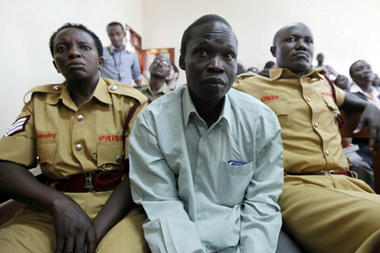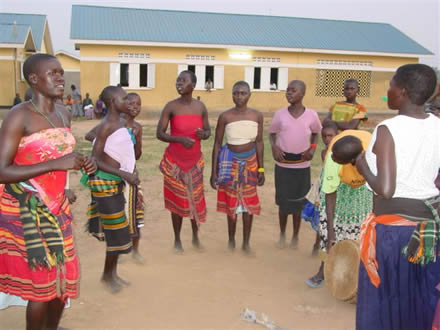On 24 September 2015, a redacted version of a “Notice of intended charges against Dominic Ongwen” by the Office of the Prosecutor (OTP) at the International Criminal Court (ICC) was made public. This notice outlines the charges the OTP intends to bring against alleged Lord’s Resistance Army (LRA) commander Dominic Ongwen and includes several additions to the seven charges of war crimes and crimes against humanity previously brought against him.
Following this development, the Justice and Reconciliation Project (JRP) issues the following statement:
JRP especially welcomes the announcement by the OTP of intended charges related to sexual and gender-based crimes. Accountability for sexual and gender-based violence (SGBV) has often been difficult to secure in criminal proceedings in cases at both the ICC and the International Crimes Division of the High Court of Uganda (ICD). With the support of JRP, the members of the Women’s Advocacy Network (WAN), have advocated since 2011 for justice, acknowledgment and accountability for gender-based violations inflicted upon them during the conflict. These intended charges provide recognition of the work of the WAN as well as an opportunity for renewed discussion on accountability for SGBV during conflict.
JRP also welcomes the clarification of the nature of the charges to be levelled against Dominic Ongwen, particularly in relation to his alleged role in contributing to the implementation of the Lukodi massacre of 2004. Prior to this notice, the nature of the allegation of Dominic Ongwen’s involvement in the Lukodi massacre was subject only to speculation among the affected community in northern Uganda. Clear information about proceedings at the ICC is vital in creating a sense of ownership and involvement towards this case and the Court for northern Ugandans.
JRP sees the extension of the intended charges against Dominic Ongwen to atrocities committed in Pajule, Odek and Abok as an opportunity for more communities to be involved in discussions on accountability. Victims in many places across northern Uganda, such as Odek, have often expressed feelings of dismay at not being involved in transitional justice processes. Incorporating these communities in processes such as these is key in providing acknowledgment of these communities’ conflict-experiences.
Finally, JRP welcomes the focus that these intended charges bring to questions of accountability for atrocities, and in particular towards SGBV crimes, committed by both LRA and government forces during the conflict in northern Uganda. This is an opportunity to draw attention to avenues for and the continued need for redress for victims and survivors of conflict in northern Uganda.












